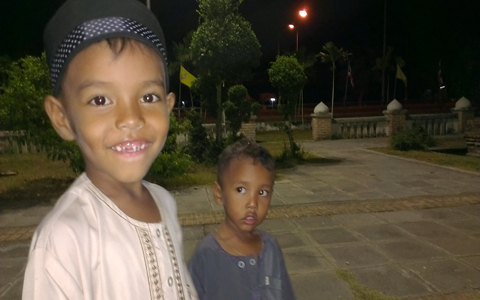Self-determination for the deep South still a distant dream?

Deputy Army Commander-in-Chief General Dapong Rattanasuwan warned in his August 10 press interview that Thailand might lose the three southernmost provinces if a referendum was to be held to allow the people down there to decide whether they want self-determination or not.
General Dapong's remark seems to have revived the self-determination issue which has been on and off for the past several years but without any clear sign of a conclusion. The issue was raised at seminars on various occasions by Dr Surachart Bamrungsuk, a security expert from Chulalongkorn University.
In the 59th issue of Security Study newsletter on the subject of "The Principle of Self-Determination", Natkrista Mekha wrote that the concept of rights of self-determination was conceived before the establishment of the United Nations. The concept was incorporated in the UN Charter which is applicable to all member countries.
Details of the rights to self-determination first appeared in the Resolution No 1514 of the United Nations General Assembly on December 14, 1960 on the subject of "Declaration on the Granting of Independence to Colonial Countries and Peoples". The resolution resulted to the independence of several colonial states.
In the Security Study newsletter, it was written that external self-determination or secession was a very important issue which was widely debated during the drafting of the saving clause of the Declaration on Friendly Relations. The international laws do not endorse the people's right of secession while, at the same time, do not deny the people’s right of secession.
Sharing his thought on this issue, an academic within the military said that self-determination process must be in compliance with the United Nations framework – that is the issue must considered by the UN Security Council. Hence it is not possible that the people in the deep South can raise the issue with the Security Council if they want a separate homeland from the Thai state. Moreover, he noted that there has never been an opinion survey about how the people in the deep South think about the issue of self-determination or session just words of mouth that most of the people there want the region to be part of the country.
The same academic said that the military was very sensitive about the self-determination issue and did not want to discuss it openly for fear that the issue could lead to the separation of the deep South and the creation of a separate homeland from the Thai state.
A highly-placed source in the Internal Security Operations Command said that self-determination could only be possible when there is a civil war or a genocide and secession would lead to a solution of the conflict.
The source cited the case of Syria where a war has been going on between the government and the rebels. He said the situation in Syria justified the UN intervention unlike the situation in the three southernmost provinces of Thailand where a low intensity insurgency war has been raging for eight years now.
Security expert Dr Panitharn Wattanayakorn said that the self-determination issue has been discussed within academic circle for a long time but without any conclusion. He said there was a split opinions about the issue with one side insisting that self-determination for the deep South was not possible because the restive region is not economically strong enough to survive and more problems might follow. The other side however believes that self-determination is possible and if it is the wish of the majority of the people regardless of whatever the consequences.
But Panitharn said that there are at least three questions which need to be answered before the issue of self-determination is to be discussed in earnest.
Foremost of all, if a referendum is to be staged to gauge the opinions of the people in the region, are the result of the poll reliable and does it really reflect the actual wish of the people?
If most of the people do not want self-determination, will the insurgents stop the violence?
Should the people in the other parts of the country be allowed to join the referendum because they too are Thais and the deep South is part of their country?
Dr Panitharn said he didn’t think self-determination had a chance of success. But he added that the government should be more serious about the issue of special administration for the deep South which could ease the tension and give the country a better image.
-------------------------------------------------------------------------------------------------------------
Caption : Muslim children in far South
